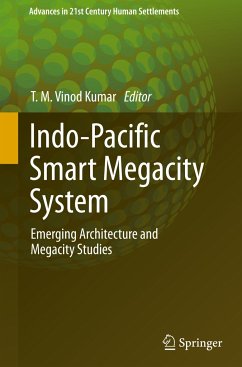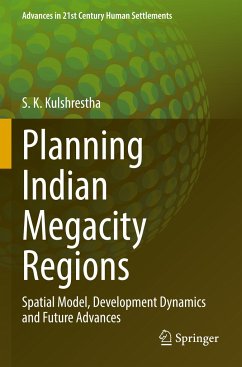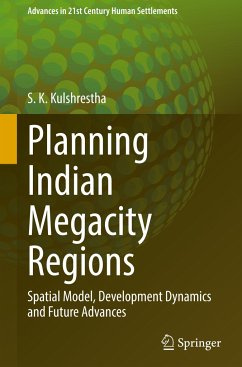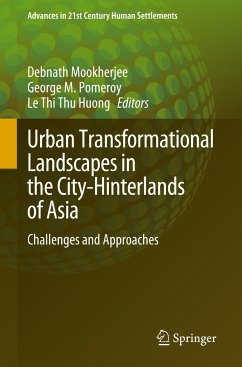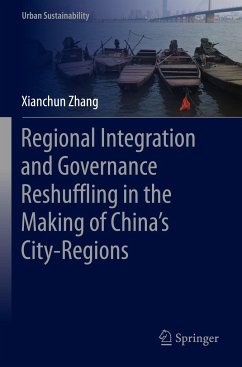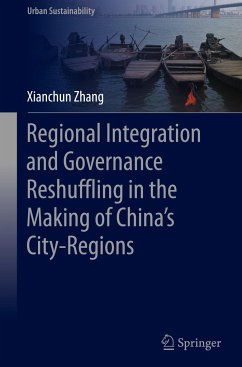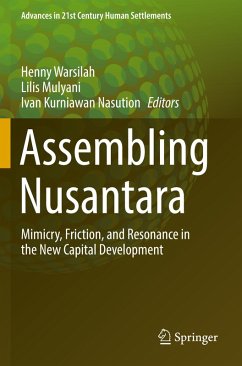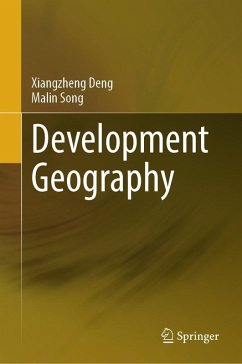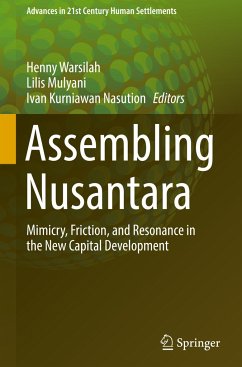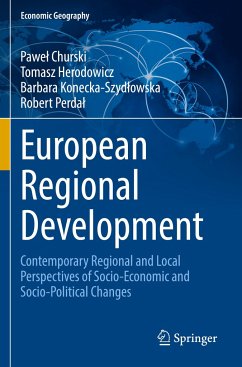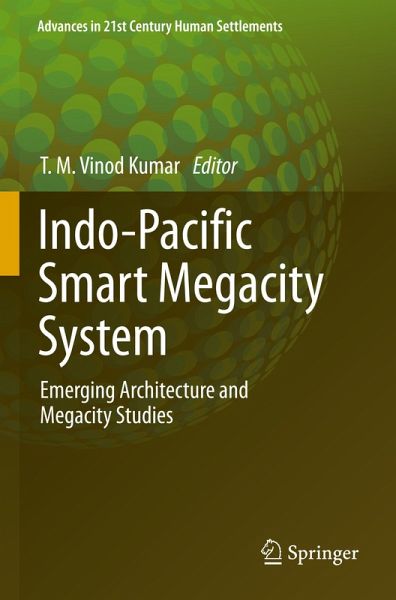
Indo-Pacific Smart Megacity System
Emerging Architecture and Megacity Studies
Herausgegeben: Vinod Kumar, T. M.
Versandkostenfrei!
Versandfertig in 6-10 Tagen
121,99 €
inkl. MwSt.

PAYBACK Punkte
61 °P sammeln!
This book is an in-depth study of the Indo-Pacific region for effective interventions in the megacities system. First, based on several criteria, the region is identified as homogeneous country groupings of diversity, a multi-polar spatial system, and as program regions of QUAD and I2U2 for action programs and investment transcending many nations but mostly the ocean space of the Indo-Pacific, connecting all megacities sub-regions spatially and functionally. Then, the megacities with problems and prospects for economic integration are studied from the point of view of regional economics and in...
This book is an in-depth study of the Indo-Pacific region for effective interventions in the megacities system. First, based on several criteria, the region is identified as homogeneous country groupings of diversity, a multi-polar spatial system, and as program regions of QUAD and I2U2 for action programs and investment transcending many nations but mostly the ocean space of the Indo-Pacific, connecting all megacities sub-regions spatially and functionally. Then, the megacities with problems and prospects for economic integration are studied from the point of view of regional economics and international trade, and finally, the rural-urban interface with case studies of selected countries is presented. Prospects of systems of megacities and individual megacities for regional economies are designed. Existing interconnections through rail, air, and ocean of megacity systems, their capacity, performance, and potential are analyzed for emerging issues. International trade among the megacity systems/countries with emerging issues and barriers are presented. The mobility of money, goods, and services among the systems of megacities is analyzed. Rule-based diplomacy and other emerging options are discussed to sustain the above calls for a study of the Security of the Indo-Pacific region. Finally, the emerging architecture for megacity system governance is also presented.
Out of 21 megacities in the Indo-Pacific, an in-depth study of a few in India and Japan in the Indo-Pacific region for effective economic interventions in the megacities system at the city level was studied. COVID-19 has affected most of the countries in the Indo-Pacific. With a contraction of GDP and a GDP growth rate negative, the number below the poverty level increased. Foreign Direct Investment is not forthcoming in any of these countries. Job creation becomes a priority in addition to public health concerns connected with COVID-19.
Out of 21 megacities in the Indo-Pacific, an in-depth study of a few in India and Japan in the Indo-Pacific region for effective economic interventions in the megacities system at the city level was studied. COVID-19 has affected most of the countries in the Indo-Pacific. With a contraction of GDP and a GDP growth rate negative, the number below the poverty level increased. Foreign Direct Investment is not forthcoming in any of these countries. Job creation becomes a priority in addition to public health concerns connected with COVID-19.



